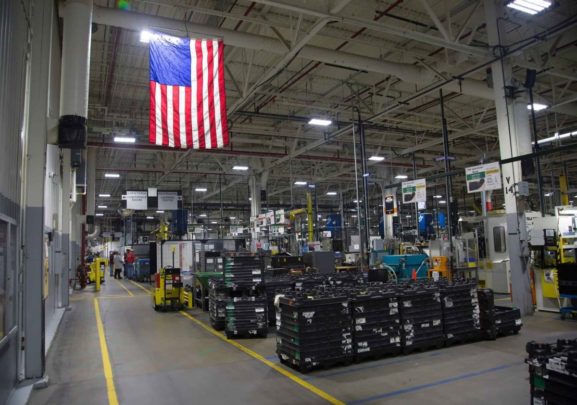NAM Applauds Congressional Focus on Key Manufacturing Tax Provisions
New Bipartisan, Bicameral Bill to Address Interest Deductibility Introduced On April 20
Following the American Investment in Manufacturing (AIM) Act, bipartisan, bicameral legislation that would reinstate the Earnings Before Interest, Tax, Depreciation and Amortization (EBITDA) measure for U.S. businesses, National Association of Manufacturers President and CEO Jay Timmons released the following statement:
 “America’s leadership in the world and our ability to defend American values depend on a strong and thriving manufacturing industry. The AIM Act will strengthen our ability to make critical investments in machinery and equipment while protecting more than 450,000 American jobs,” says Timmons. “We thank the bipartisan group of House and Senate members who understand that a competitive tax environment is a key driver to ensure that we can continue to grow and invest in manufacturing in America at this critical time.”
“America’s leadership in the world and our ability to defend American values depend on a strong and thriving manufacturing industry. The AIM Act will strengthen our ability to make critical investments in machinery and equipment while protecting more than 450,000 American jobs,” says Timmons. “We thank the bipartisan group of House and Senate members who understand that a competitive tax environment is a key driver to ensure that we can continue to grow and invest in manufacturing in America at this critical time.”
Over the past month, both chambers of Congress introduced legislation to 1) restore the immediate deductibility of research and development costs; 2) reverse the new, stricter limit on interest deductibility; and 3) revise the tax code to restore businesses’ ability to take 100% deductions for equipment and machinery purchases in the tax year of purchase.
“While the U.S. tax code is making it harder for manufacturers to grow, other countries are encouraging industrial investment. For example, China is giving manufacturing companies there a 200% deduction for R&D, while the U.S. only offers a fraction of that. The legislation that’s been introduced can help us turn the tables and make it easier for America to out-innovate China,” Timmons adds. “So we’re asking Congress and the Biden administration to make passage of these bills a priority so we can build on the successes that we had following tax reform in 2017, when manufacturers were able to keep their promises and invest in their companies and communities across the board.”
Background:
Research and development: On Jan. 1, 2022, a harmful tax change went into effect that makes R&D more expensive in the United States by requiring businesses to deduct their R&D expenses over a period of years. Read more about the NAM’s work on this provision here.
Interest deductibility: When manufacturers borrow funds to buy capital equipment, the interest they pay on those loans is tax deductible up to a certain limit. But a recent change in the tax law modified how that limit is calculated—shrinking the deduction for companies that invest in long-lived depreciable assets, making debt financing more expensive and the U.S. an outlier among advanced economies and leaving less capital for job creation and investment. Read more about the NAM’s work on this provision here.
Full expensing: Under the 2017 tax law, manufacturers were able to deduct 100% of their investments in assets with long, useful lives, supporting their ability to acquire vital equipment and strengthening their competitiveness. However, the ability to deduct 100% of these costs began to phase down at the beginning of 2023 and is set to expire completely in 2027. See how full expensing has benefited small manufacturers in the United States here.


